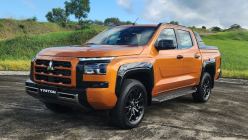To say that the Philippines is familiar with Mitsubishi Motors is an understatement. The company has been a household name for generations of car owners, with iconic models ranging from the Minica and Lancer to the Montero Sport and Pajero SUV lines. Die-hard Mitsubishi fans still relish its glory days in rally racing while still hoping for the return of the Evo badge.
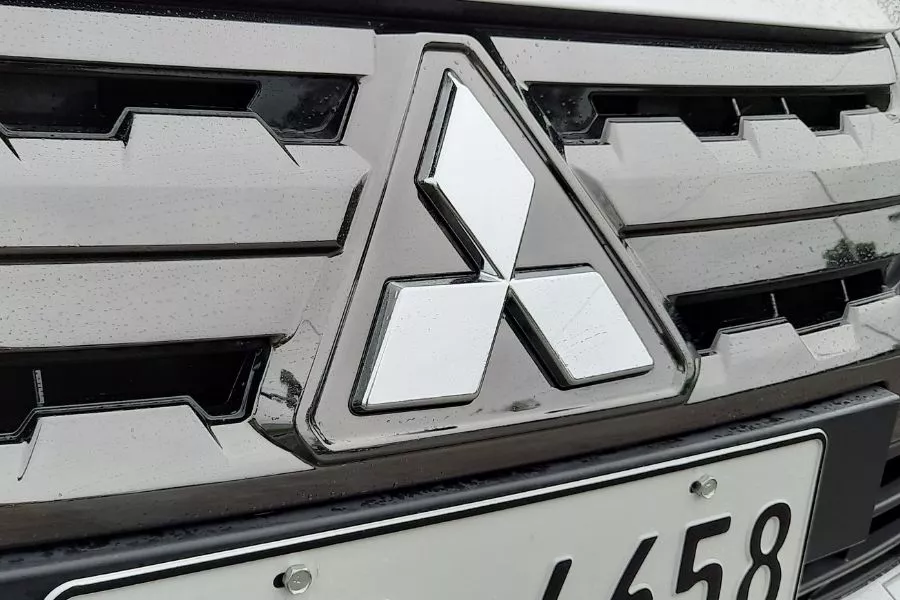
Filipinos easily recognize the three-diamond brand among carmakers
All these milestones aside, the carmaker is still a relatively young brand. Prior to Mitsubishi Motors’ formal establishment in 1970, most of its cars were made under the stamp of Mitsubishi Heavy Industries. These included the first Japanese-built sedan with all-wheel-drive in 1937 (the PX33), the first passenger car produced after World War II (the Mitsubishi 500), and the Debonair four-door luxury car, Mitsubishi’s largest sedan in the 1960s.
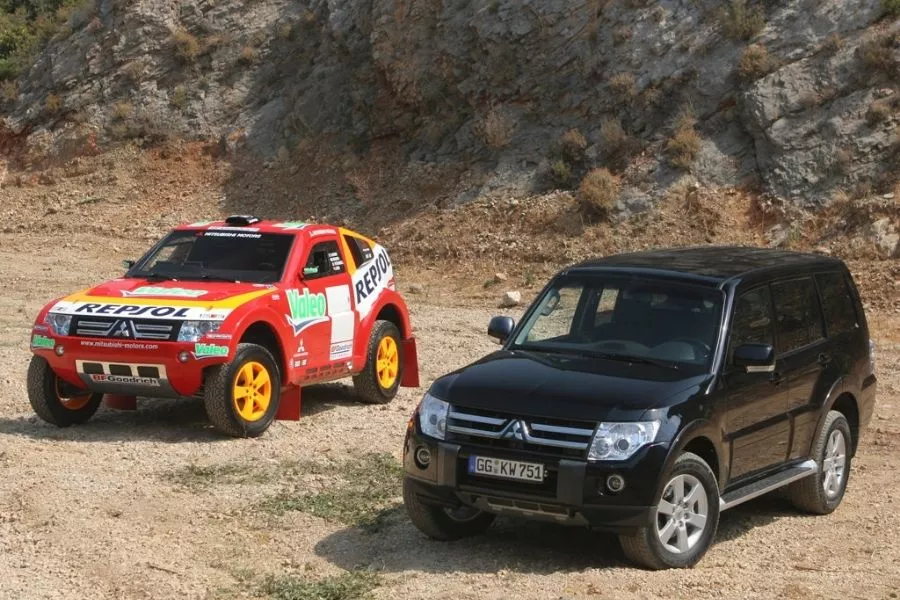
The company's motorsports victories influenced its mass-produced models
In contrast, the logo that Mitsubishi Motors uses predates the carmaker by almost a century. While we readily associate the three red diamonds with cars as the company’s most recognizable product, over 40 firms within the Mitsubishi keiretsu (enterprise group) actually share the corporate symbol, spanning various areas of interest including shipping, banking, chemicals, power generation, real estate, academics, and sports.
Origins
Japanese industrialist Iwasaki Yataro founded the shipping firm Tsukumo Shokai (Trading Company) in 1870. At the outset, Yataro wanted the company’s identity to reflect two important groups in his life: the Tosa clan from which he was born, and the Iwasaki family whose name he bears.
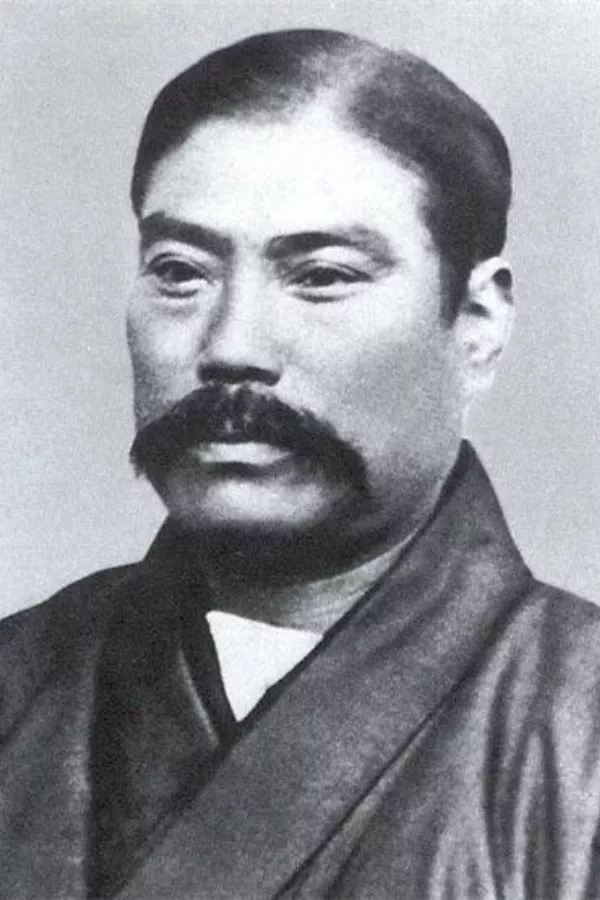
Mitsubishi founder Iwasaki Yataro honored two families with his company's symbol
The resulting logo used the three-layer stacked lozenges of the Iwasaki family crest, adopting the rotational symmetry configuration of the three oak leaves used by the Tosa clan’s Yamauchi family, who were Yataro’s first employers. Combining the two resulted in a logo that largely resembled a ship’s propeller, seemingly appropriate for the company’s trade.
In 1873, the company name was changed to Mitsubishi, combining the words mitsu (three) and hishi (water chestnut, often used to describe a rhombus or diamond shape). The logo was updated in 1914, with the small circle connecting the three thin rhomboids changed into a solid point to evoke strength and confidence. This would be the company’s symbol for the next 50 years.
The logo's elements
The last major change so far to the logo was in 1964, with the rhomboids taking on a bolder and more balanced appearance. Each of them is said to represent one of three values espoused by Mitsubishi: integrity, success, and reliability.
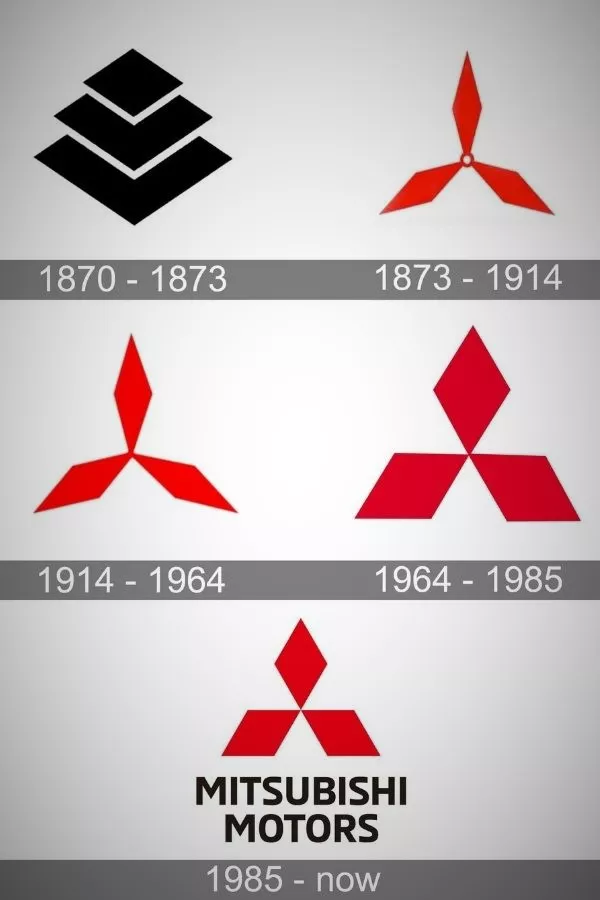
The Mitsubishi logo continues to reflect the company's values
Straight lines and sharp angles help instill a sense of authority, with the use of red as a color communicating energy and passion. This simple geometric approach proved instrumental in making Mitsubishi’s visual identity instantly recognizable anywhere. The logo would be accompanied by the black ‘Mitsubishi’ wordmark in 1985, which eventually became ‘Mitsubishi Motors’ while retaining the original hue.
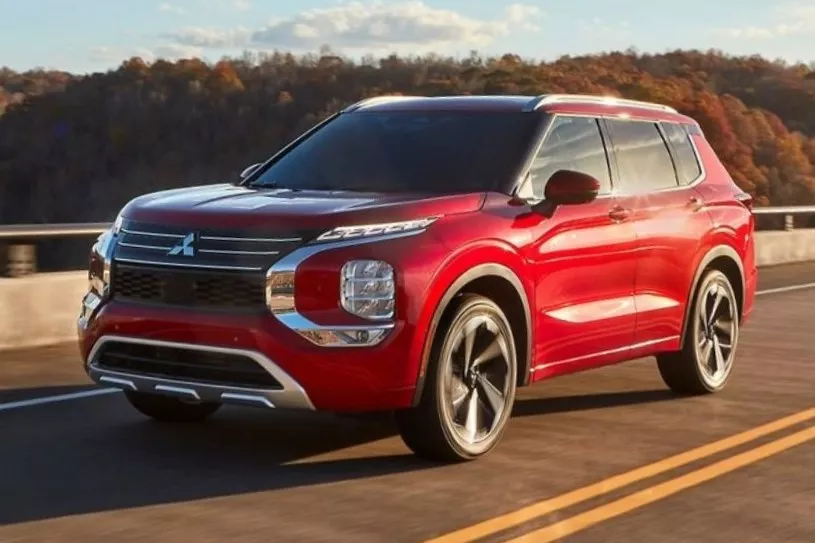
It still looks good on newer models, with its simplicity and timelessness
The Mitsubishi logo has not changed even with the transition to the new millennium. Part of the reason has something to do with the company’s tribute to its roots. Another is that the logo remains visually impressive despite its simplicity, and it has managed to avoid looking dated even on the company’s newer models.
See more stories behind your favorite automotive symbols at Philkotse.com.
Know more about Mitsubishi

Mitsubishi Philippines offers five passenger cars and one light commercial vehicle model for the local market.
The most affordable Mitsubishi model locally is the Mirage hatchback, which starts at Php 769,000. For SUVs, the marque has the Montero Sport. There's also the Outlander PHEV crossover, the Xpander and Xpander cross for MPVs, the Mirage G4 sedan, the Triton pickup truck, and the L300 light commercial vehicle.
At Philkotse, we provide the most up-to-date Mitsubishi Price list, as well as the latest and hottest car promos ranging from low monthly amotrizations, cash discounts, and low downpayments.
For more information about the Mitsubishi Philippines price list 2023, as well other details regarding the brand, continue below.






